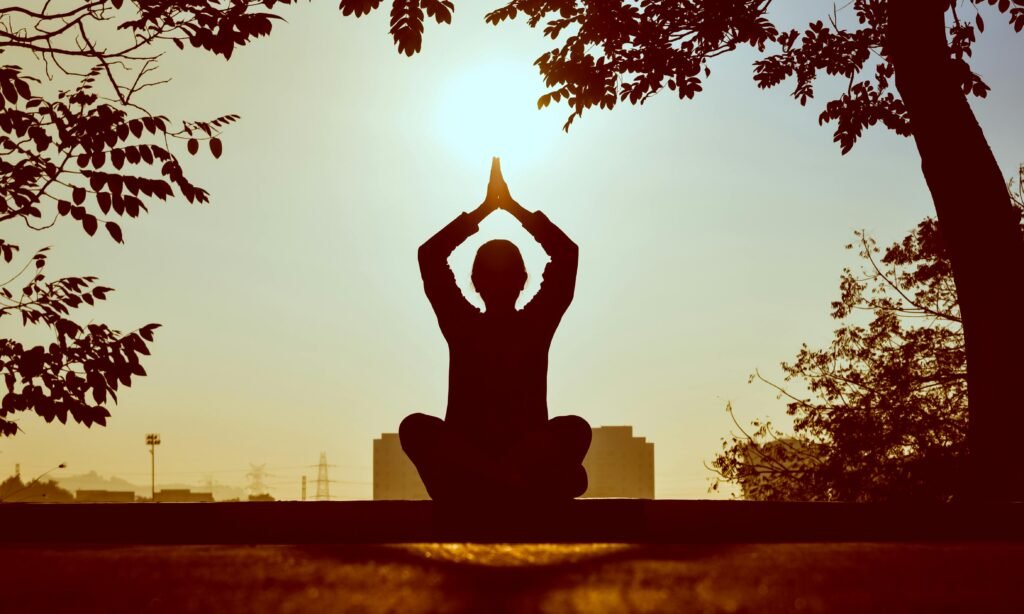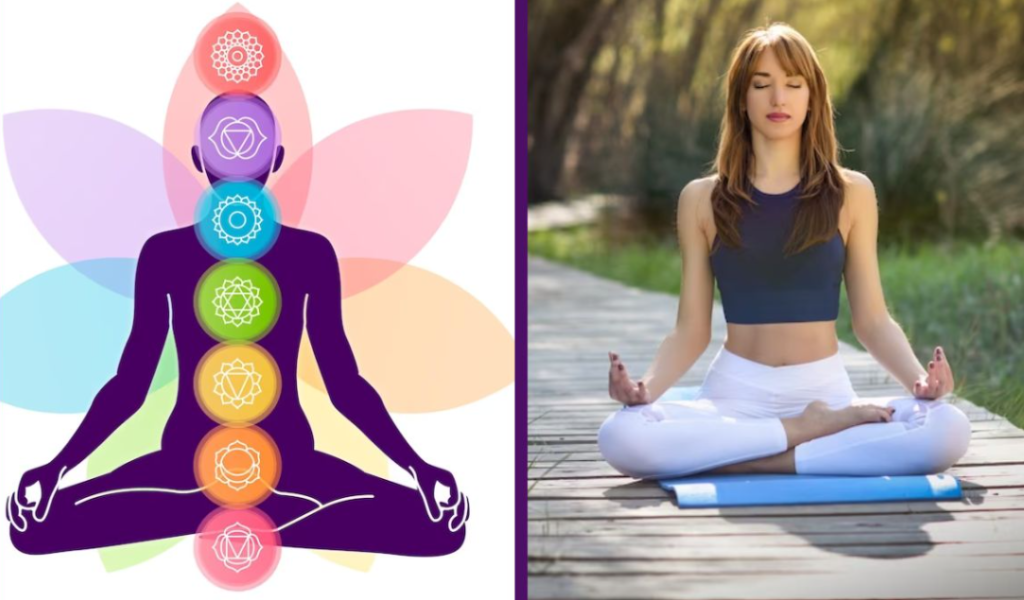Introduction:
In today’s fast-paced world, meditation helps to find moments of inner peace and repose. It is a valuable practice for anyone looking to live a better life because it can help develop awareness and promote well-being. Numerous psychological and physical advantages of regular meditation have been demonstrated by empirical research. The benefits of it include reducing stress and anxiety, improving sleep quality, and developing emotional resilience.
This article will go over the history of meditation, look at the benefits it has that are supported by science, and talk about how it makes people more aware. We will discuss the advantages of meditation for stress relief, better sleep, emotional stability, physical health, and longevity in addition to providing beginner-friendly meditation techniques. No matter how experienced you are or how much you want to improve your practice, you are welcome to join us as we discuss the numerous benefits of meditation for both general health and mindful living.
Key Takeaways
- The act of reflection is gainful for working on broad well-being and cognizant living.
- Its positive effects on emotional well-being, sleep quality, and stress reduction are supported by research.
- There are a lot of different ways to meditate that will work for both new and seasoned practitioners.
- Mindfulness is cultivated through meditation, which in turn aids in self-awareness and emotional resilience.
- Regular meditation practice has the potential to improve physical health and longevity.
Understanding Meditation and Its Origins

You May Also Like: Powerful Yoga for Stronger Bonds 10 tips: Empower your Family
It is a practice that has a long history and comes in many different styles and traditions. We gain a deeper comprehension of meditation’s significance and impact on mindful living and overall well-being by studying its history. Meditating has its origins in ancient civilizations like India, China, and Greece that date back thousands of years. In these cultures, it was seen as a way to find inner peace and spiritual enlightenment.
Sages, philosophers, and spiritual leaders used it as a way to connect with the higher self and experience deep peace. Over time, a variety of meditation methods emerged, each with its own approach and purpose. It has developed and adapted to various cultural contexts, including Buddhism’s mindfulness practices, yoga’s contemplative traditions, and Taoism’s focused attention techniques.
“Meditation is not a means of escape from reality but a means of encountering it more fully.” – Jon Kabat-Zinn
People from all walks of life and religious traditions began to embrace meditation as it spread around the world. Millions of people worldwide today, regardless of their religious or spiritual affiliations, engage in meditation practice. The numerous advantages it offers for mental, emotional, and physical health are to blame for its popularity. We can better appreciate its rich history and the wisdom it carries if we know where it came from.
We gain insight into the profound impact that it can have on our lives by delving into its various forms and traditions. It is a way to connect with our innate wisdom and cultivate a more balanced and fulfilling existence, whether we are looking for inner peace, stress reduction, or a greater sense of self-awareness.
Science-backed Benefits of Meditation
In addition to being a spiritual practice, it is supported by science. The numerous advantages of incorporating meditation into your daily routine have been demonstrated by numerous studies. it has a significant impact on your health, ranging from reducing stress and anxiety to improving cognitive function and overall well-being.
Reducing Stress and Anxiety
The ability of it to lower levels of stress and anxiety is one of its most well-known advantages. You can activate the body’s relaxation response, which counteracts the effects of stress hormones, by regularly practising meditation. it has been shown to significantly lower stress levels and assist in the management of anxiety disorders, according to studies.
Improving Cognitive Function
It has been discovered that it improves focus and concentration as well as cognitive function. It has been demonstrated that regular meditation practice increases grey matter in the brain, particularly in memory, attention, and emotional regulation domains. Additionally, it encourages neuroplasticity—the brain’s capacity for change and adaptation—which is essential for cognitive development.
Promoting Emotional Well-being
 Happiness and overall health depend on emotional health. By allowing people to observe their thoughts and emotions without judging them, it fosters emotional resiliency and calm. Self-awareness increases, reactivity decreases, and a sense of inner calm and contentment are all cultivated through this practice.
Happiness and overall health depend on emotional health. By allowing people to observe their thoughts and emotions without judging them, it fosters emotional resiliency and calm. Self-awareness increases, reactivity decreases, and a sense of inner calm and contentment are all cultivated through this practice.
Boosting Immune System
The immune system may benefit from regular meditation practice, according to research. The body’s inflammation, which is linked to a variety of chronic diseases, is reduced by it. it strengthens the immune system’s response, enhancing overall health and well-being by reducing stress and encouraging relaxation.
Promoting Better Sleep
Sleep issues, such as insomnia or restless nights, affect many people. By relaxing the mind and calming it down, it can help you sleep better. You can set the stage for a peaceful and conducive environment for a restful night’s sleep by incorporating meditation techniques before bedtime.
Enhancing Overall Well-being
Beyond just health, it has many other advantages. It has been demonstrated that engaging in regular practice has a positive impact on one’s overall well-being, from raising one’s sense of self-worth and encouraging a positive outlook on life to increasing one’s sense of happiness and contentment in one’s life. A mind-body holistic approach to health is provided by it.
| Benefit | Summary |
|---|---|
| Reduced Stress and Anxiety | Activate the body’s relaxation response, decrease stress levels, and manage anxiety disorders. |
| Improved Cognitive Function | Enhanced focus, concentration, and memory with increased grey matter in the brain. |
| Promoted Emotional Well-being | Cultivate emotional resilience, reduce reactivity, and foster inner calm and contentment. |
| Boosted Immune System | Reduced inflammation, strengthened immune response, and improved overall health. |
| Promoted Better Sleep | Calmed the mind, induced relaxation, and facilitated a restful night’s sleep. |
| Enhanced Overall Well-being | Improved self-esteem, positive outlook, happiness, and life satisfaction. |
Cultivating Mindfulness Through Meditation

It is one of the best ways to cultivate a mindful state of being, and mindfulness and meditation are deeply intertwined. By rehearsing contemplation procedures, people can foster an upgraded feeling of present-second mindfulness and a more profound association with their viewpoints, feelings, and substantial sensations. We create a space for self-reflection and self-observation when we meditate. Because of this, we are able to observe the emergence of thoughts and feelings without judging or being attached. We can choose to respond more consciously and intentionally when we practice meditation on a regular basis because we become more aware of the mental patterns that shape us.
“Meditation is the key to unlock the doors of mindfulness. It provides us with the opportunity to pause, observe, and acknowledge our inner experiences with compassion.”
The development of mindfulness can be specifically aided by a variety of meditation strategies. One popular method is mindfulness meditation, in which people focus on the present moment by focusing on their breath or physical sensations. People can develop a non-judgemental attitude toward their experiences and firmly enshrine their awareness in the here and now through this practice.
In addition to meditation, breathing exercises are an effective method for developing mindfulness. People are able to bring their attention to the present moment and cultivate a sense of calm and centeredness by deliberately focusing on their breath. Diaphragmatic breathing and other deep breathing exercises can also help ease stress and anxiety by activating the body’s relaxation response. Meditation Techniques for Cultivating Mindfulness:
-
- Focusing on the breath or physical sensations in order to increase awareness of the present moment in mindfulness meditation.
- Breathing exercises are deliberate breathing exercises that aim to calm the mind and bring attention to the here and now.
- Meditation through walking involves cultivating mindful awareness while walking and paying attention to each step and foot sensations.
- Meditation on loving-kindness: The repetition of loving and kind words helps one grow in compassion and empathy for oneself and others.
People can improve their capacity to remain present and cultivate mindfulness in all aspects of life by consistently practicing these meditation techniques. It has been scientifically demonstrated that regular meditation practice cultivates mindfulness, which in turn improves focus and attention, emotional regulation, and overall well-being.
Meditation Techniques for Beginners

Don’t worry if you’re new to meditation; it’s easier than you might think! In this section, you’ll learn some easy meditation techniques designed specifically for beginners. You’ll be well on your way to experiencing the benefits of meditation in no time if you follow these step-by-step instructions!
1. Mindful Breathing
Mindful breathing is one of the easiest exercises for beginners to learn. To calm your mind, settle into a comfortable sitting position, close your eyes, and take a few deep breaths. Concentrate on the sensation of your breath entering and exiting your body. Take note of how your abdomen changes with each breath. If your thoughts start to wander, gently return them to your breath. Start with just a few minutes and gradually add more time as you get used to it.
2. Guided Meditation
Try guided meditation if you prefer some direction during your meditation practice. There are numerous websites and smartphone apps that provide beginners with guided meditation sessions. Simply select a guided meditation that piques your interest, locate a quiet location, and follow the instructions. While you explore meditation, guided meditations can help you stay focused and provide a sense of support and structure.
3. Body Scan
The body scan method is a great way to relax and become more aware. Begin by lying down in a comfortable position and focusing on various body parts, starting with your toes and working your way up to the top of your head. As you scan each part of your body, take note of any sensations, tension, or areas of relaxation. Relaxation and body awareness are helped along by this method.
4. Loving-Kindness Meditation
Developing feelings of love, compassion, and kindness toward oneself and others is the goal of loving-kindness meditation. Find a quiet spot where you can relax. Imagine sending well wishes to yourself, a friend, a neutral person, or even someone with whom you might have issues. Keep your eyes closed. “May you be happy, healthy, and safe” is a good example. Empathy, well-being, and a sense of connection are all enhanced by this practice.
Remember, the key to successful meditation is consistency and patience. Don’t worry if your mind wanders or if you find it challenging – that’s completely normal, especially for beginners. With practice, you’ll develop a greater sense of focus and inner peace. Enjoy the journey!
| Technique | Description |
|---|---|
| Mindful Breathing | Focus on the sensation of your breath as it enters and leaves your body. |
| Guided Meditation | Use guided audio or video to facilitate your meditation practice. |
| Body Scan | Progressively shift your attention to different parts of your body, noticing any sensations or tension. |
| Loving-Kindness Meditation | Cultivate feelings of love, compassion, and kindness towards yourself and others. |
Meditation and Stress Reduction
Stress has become a common part of our daily lives in today’s fast-paced world. Our physical and mental health can suffer as a result of the constant demands and pressure. Meditation, on the other hand, is a potent practice that can help us find equilibrium in the midst of chaos and effectively reduce stress levels. We are impacted psychologically and physiologically by stress. The “fight or flight” response is sparked when stress hormones like cortisol and adrenaline are released by our bodies.
In brief bursts, this response can be beneficial, but over time, it can be detrimental. It can make you more likely to get high blood pressure, have a weaker immune system, and have other health problems. On the other hand, It provides a natural and all-encompassing strategy for stress management and relief. We can activate the body’s relaxation response by regularly practising meditation, thereby reducing stress hormone production, lowering blood pressure, and slowing the heart rate.
“Meditation is like a mental shower, washing away the accumulated stress and replenishing our inner reservoir of calm and peace.” – Deepak Chopra
It allows us to let go of worries and concerns by bringing us into the present moment through focused attention and mindfulness. It creates a quiet place inside of us where we can observe our feelings and thoughts without judging them. We can cultivate a sense of inner calm and gain perspective through this awareness, even in challenging circumstances.
The Benefits of Meditation for Stress Reduction

It has been shown to significantly improve psychological well-being and stress reduction in research. Benefits include the following:
-
- Decreased anxiety levels
-
- Improved mood and emotional regulation
-
- Increased self-awareness
-
- Enhanced resilience to stress
-
- Better sleep quality
-
- Improved overall sense of well-being
We can effectively manage stress, improve our mental and physical health, and cultivate a life that is more balanced and fulfilling by incorporating meditation into our daily routine.
Improving Sleep Quality Through Meditation
Poor quality sleep can have a negative impact on our physical and mental health, despite the fact that sleep is an essential component of overall well-being. It can help you get a good night’s sleep and improve the quality of your sleep by being incorporated into your daily routine. It has been shown to improve sleep patterns and address common sleep-related issues like insomnia and restless sleep, according to research. You can facilitate a smoother transition into a deep and rejuvenating sleep by practising meditation techniques before bedtime.
This will create a calm environment for your mind and body. Mindfulness meditation is one effective meditation technique for improving sleep quality. Focusing on the present moment, letting go of frantic thoughts and worries, and embracing a state of calm and relaxation are all part of this practice. You can achieve a more peaceful state of mind and a better night’s sleep by practising mindfulness meditation before bed.
“Meditation is a powerful tool that can help calm the mind, release tension, and prepare the body for a restful sleep.” – Dr. Emily Thompson, Sleep Specialist
Progressive Muscle Relaxation Technique
The progressive muscle relaxation method is another one that has the potential to improve the quality of one’s sleep. Each muscle group in your body is systematically strained and relaxed in this practice, which helps you relax both physically and mentally. This method can help you get ready for a restful, deep sleep by easing tension in the body and making it feel more at ease.
The progressive muscle relaxation technique can be used in the following manner:
-
- Close your eyes and settle into a comfortable position in the bed.
- Start by tensing your muscles for a few seconds starting with your toes. After that, let go of the tension and feel the relaxation spread throughout your feet.
- Tensing and relaxing each muscle group as you work your way up.
- Pay close attention to how each muscle group relaxes and lets go of tension.
- Keep going like this until you reach the top of your head.
- Relax completely by taking a few long, slow breaths.
You can create a peaceful and calming environment that encourages deep sleep and enhances the quality of your sleep by incorporating these meditation techniques into your bedtime routine. You may find that a consistent meditation practice leads to increased energy levels, improved focus and concentration, and an overall sense of well-being throughout the day. These benefits extend beyond the hours spent sleeping.
| Benefits of Meditation for Sleep Quality | Techniques |
|---|---|
| Balances the nervous system | Mindfulness meditation |
| Reduces anxiety and stress | Progressive muscle relaxation |
| Enhances relaxation and calmness | |
| Improves overall sleep quality |
Meditation for Emotional Well-being
Our overall quality of life is greatly influenced by our emotional well-being. It has an impact on how we overcome obstacles, build relationships, and find joy in the little things in life. It is a potent practice that can help us cultivate greater self-awareness, effectively manage our emotions, and cultivate resilience in the face of adversity. It can also have a positive impact on our emotional well-being. When we meditate, we create a space for self-analysis and reflection. This permits us to turn out to be more receptive to our feelings, recognizing them without judgment. We increase our emotional awareness by bringing our attention to the present moment through guided visualization or focused breathing exercises.
We learn to recognize the subtleties of our emotions and how they affect our thoughts and actions. We are able to respond to our emotions with clarity and compassion because of this increased awareness. It allows us to pause and choose how we want to respond to various emotional experiences, preventing us from acting impulsively or getting bogged down in thought. We learn to overcome difficult emotions with greater ease and grace through consistent practice, which strengthens our emotional resilience. By calming the mind and reducing stress,
It also encourages a positive and balanced mindset. It has been shown to reduce stress hormones and activate the body’s relaxation response, resulting in an overall sense of calm and well-being, according to research. It allows us to approach life’s ups and downs with greater equanimity because it opens the door to a more positive and optimistic outlook by reducing stress and anxiety.
Additionally, it aids in the development of virtues like gratitude, compassion, and patience. We gain a broader perspective and a deeper sense of empathy for both ourselves and other people when we sit still and observe our thoughts and feelings without attaching ourselves to them. By fostering positive connections and improving our interpersonal relationships as a whole, this creates a nurturing environment for emotional well-being.
Meditation is not about eliminating negative emotions but rather embracing them with acceptance and kindness.
It is possible to significantly improve our emotional well-being by incorporating meditation into our daily routine. We build a foundation for emotional health and resilience by committing to a regular practice, even if it’s just for a few minutes each day. We experience increased levels of happiness, contentment, and peace in our lives as we learn to manage the ups and downs of our emotions.
| Benefits of Meditation for Emotional Well-being |
|---|
| Enhanced emotional awareness and self-understanding |
| Improved emotional regulation and resilience |
| Reduced stress and anxiety |
| Promotion of a positive and balanced mindset |
| Enhanced empathy and compassion |
Meditation for Physical Health and Longevity

Recommended: Insomnia Breakthrough: Empowering Natural Remedies for Deep Sleep
Taking care of our physical health is more important than ever in today’s fast-paced world. A holistic approach to well-being includes practices that nourish the mind and body, in addition to exercise and a healthy diet. It helps with that. Including meditation in our daily routines has been shown to have significant benefits for our physical health and longevity, according to research. It aids in the reduction of stress and its negative effects on the body by teaching our minds to focus and silence the constant chatter.
It has been demonstrated that meditation has a beneficial effect on a variety of aspects of physical health. Its capacity to strengthen the immune system is one of its most notable advantages. Our immune systems become weakened when we are stressed, making us more likely to get sick. Practicing meditation on a regular basis can boost our immune system, making us more resistant to infections and enhancing our overall health.
“Meditation allows the immune system to function more effectively by reducing stress hormones and enhancing the body’s natural defense mechanisms.” – Dr. Deepak Chopra
Additionally, improved cardiovascular health has been linked to meditation. Regular meditation practice has been shown to lower blood pressure and lower the risk of heart disease, according to research. Meditating induces a deep state of relaxation, which aids in heart health maintenance and enhances blood flow. The ability of it to slow down ageing is yet another fascinating aspect of the practice. Meditating can help us maintain our youthfulness by lowering stress levels, which can slow the process of ageing. Studies have shown that regular meditators have longer telomeres, which is linked to better cellular health and longevity.
Conclusion
We have discussed the numerous advantages of meditation for mindful living and overall health throughout this article. It has proven to be a potent tool for enhancing physical, mental, and emotional well-being, based on evidence that is supported by science and its ancient origins. People can improve their focus, reduce stress, and develop a deeper awareness of themselves by practising mindfulness through meditation.
It is accessible to anyone wishing to begin their meditation journey thanks to techniques designed specifically for novices. It has also been shown to improve emotional resilience, longevity, and the quality of one’s sleep. It promotes a harmonious balance between the mind, body, and spirit and serves as a holistic approach to self-care. People are given the ability to lead lives that are more mindful, fulfilling, and healthy when they incorporate meditation into their daily lives.
FAQ
What are the benefits of meditation for mindful living and health?
There are numerous advantages to meditation for mindful living and overall health. It supports physical health and longevity, enhances emotional well-being, promotes better sleep, reduces stress and anxiety, and improves cognitive function.
What is the origin of meditation?
It has existed for thousands of years in a variety of cultures and religions. It has its roots in ancient times. It is thought to have originated in ancient India and has since been adapted and adopted by a variety of global traditions.
Does science back the benefits of meditation?
Yes, a lot of scientific research has looked at how meditation affects health and well-being. it has been shown to help with stress reduction, focus and attention, emotional regulation, immune system strengthening, and overall mental and physical health.
How does meditation foster mindfulness?
Mindfulness can be learned to great effect through it. it aids in the development of awareness and non-judgmental acceptance of thoughts, feelings, and sensations by training the mind to focus on the present moment. Meditating on a regular basis improves mindfulness and encourages a mindful lifestyle.
What meditation techniques are recommended for beginners?
It is suggested that novices begin with straightforward practices like loving-kindness meditation or focused attention meditation. These methods are simple to incorporate into daily life and serve as a foundation for mindfulness practice.
Can meditation effectively reduce stress?
Yes, it is a great way to reduce stress. it aids in lowering cortisol levels, easing muscle tension, and fostering a sense of calm and inner peace by activating the relaxation response. Stress management and overall well-being can be significantly enhanced through consistent practice.
How can meditation improve sleep quality?
It is known that it improves the quality of one’s sleep. it has the potential to alleviate insomnia and other sleep-related issues by calming the mind and relaxing the body. Improved sleep patterns may particularly benefit from body scan meditation and mindfulness meditation.
What role does meditation play in emotional well-being?
Emotional well-being is significantly helped by it. It aids in the development of emotional resiliency, lessens emotional reactivity, and improves emotional regulation. Improved emotional well-being is a direct result of regular meditation practice, which cultivates a balanced and upbeat mentality.
Can meditation impact physical health and longevity?
Yes, it has been demonstrated that it improves physical health and may prolong life. It has the potential to strengthen the immune system, lessen inflammation, lower blood pressure, and improve overall health. While it on its own does not necessarily guarantee longevity, it can support a healthy way of life that may contribute to a longer and healthier life.